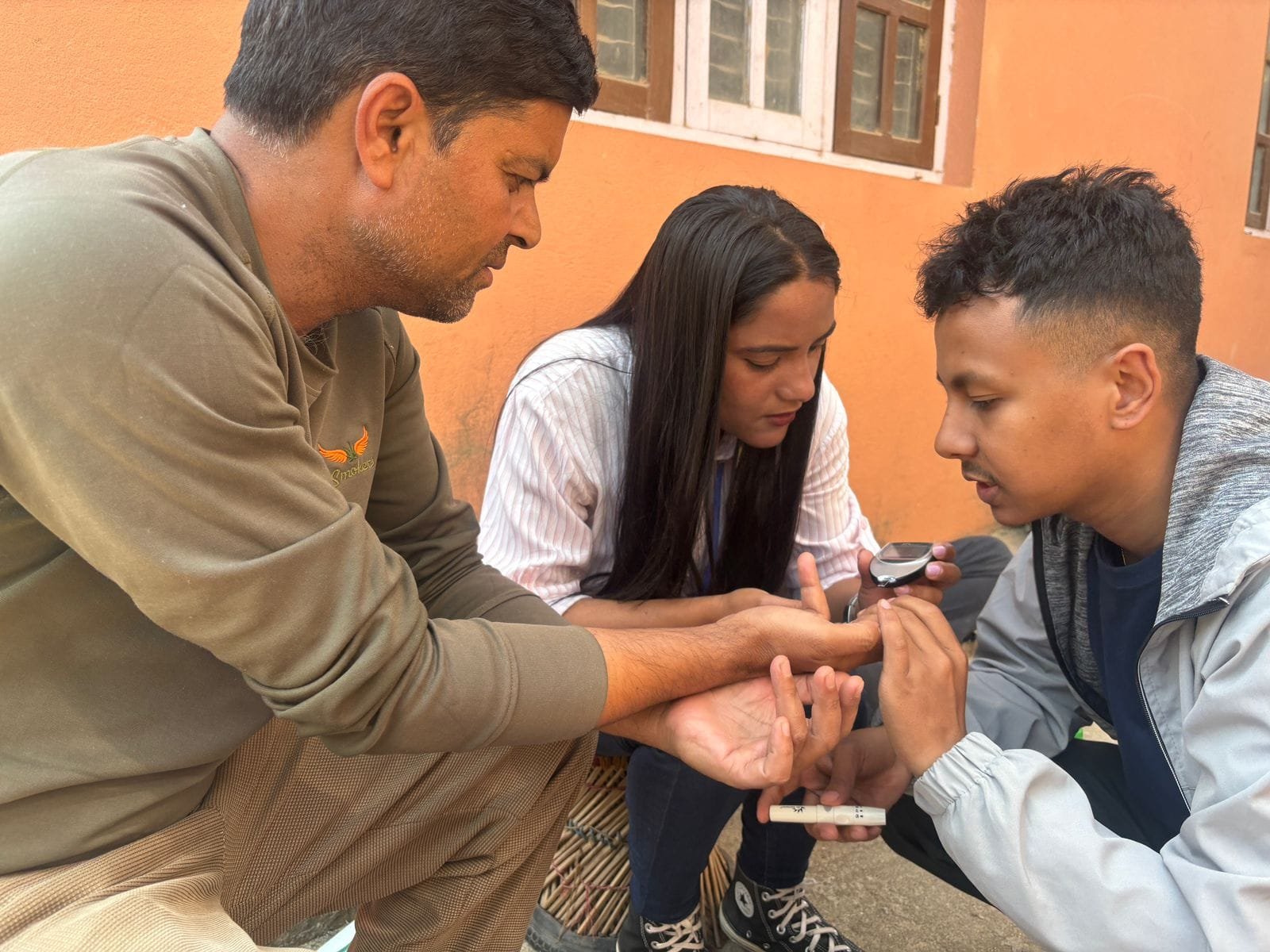The Early Symptoms of Diabetes You Shouldn’t Ignore
WHO defines diabetes as a chronic disease, metabolic disease characterized by elevated levels of blood glucose (or blood sugar), which over time leads to serious damage to the heart, blood vessels, eyes, kidneys, and nerves. characterized by high blood sugar levels (hyperglycemia). This happens when the body either does not produce enough insulin or does not use it properly. Insulin is a hormone produced by the pancreas that helps glucose enter the cells to be used as energy. There are 3 types of diabetes:
- Type 1: It is an autoimmune disease in which the pancreas does not produce enough insulin or none at all. The onset is generally during childhood or adolescence.
- Type 2: Occurs when the body becomes resistant to insulin or does not produce enough insulin. It is often linked to lifestyle.
- Gestational diabetes: Appears during pregnancy and usually disappears after delivery but it can increase the risk of developing type 2 diabetes after pregnancy.
Type 2 diabetes is the most common, and according to the WHO 830 million people worldwide have diabetes.
There are many early signs of diabetes, and recognising them as early as possible can help avoid serious complications. Common symptoms include excessive thirst and dry mouth with a constant need to drink even at night. Frequent urination is also a key sign. Many people experience unusual fatigue or feeling exhausted despite proper rest due to glucose not effectively entering the cells. Increased hunger may also develop because the body struggles to use glucose properly. Blurred vision can result from high blood sugar affecting the eye’s lens. Additionally, slow healing of wounds or frequent infections and tingling or numbness in the hands and feet are warning signs. If multiple symptoms are present, it is essential to consult a doctor for a blood sugar test.
Early diagnosis and screening for diabetes are crucial to ensure timely management and prevent complications. Since diabetes can develop silently over several years, regular screening tests are essential, especially for those at risk. Screening is recommended for individuals with risk factors such as obesity, a family history of diabetes, high blood pressure, or a sedentary lifestyle. It is also advised for those experiencing symptoms like excessive thirst, frequent urination, unexplained weight loss, fatigue, or blurred vision. Several tests are used to diagnose diabetes.
The fasting blood glucose test measures blood sugar levels after eight hours of fasting, with a result of 1.26 g/L (7 mmol/L) or higher indicating diabetes. The HbA1c test reflects average blood sugar levels over two to three months, with a result of 6.5% or more confirming diabetes. The oral glucose tolerance test (OGTT) is primarily used for diagnosing gestational diabetes, measuring blood sugar levels before and after consuming 75 grams of glucose. A random blood sugar test can also indicate diabetes if the reading is 2 g/L (11.1 mmol/L) or higher. Early screening is essential, as undiagnosed diabetes can lead to severe complications such as heart disease, kidney failure, nerve damage and vision loss. Regular medical check-ups and lifestyle adjustments can significantly help in managing blood sugar levels and preventing long-term health issues.
Preventing diabetes, especially type 2 diabetes mainly involves adopting a healthy lifestyle. A balanced diet plays a crucial role in choosing fiber-rich foods like vegetables, fruits, whole grains and legumes while limiting refined sugars and processed carbohydrates such as sodas, candies, pastries and white bread. Incorporating healthy fats like olive oil, nuts, avocados and fatty fish and reducing ultra-processed foods and excessive salt intake can further lower the risk.
Have Any Queries? Let Us Help – Contact Us!
Maintaining a healthy weight is essential as excess abdominal fat increases the likelihood of diabetes and losing 5-10% of body weight can significantly reduce this risk. Regular physical activity at least 30 minutes per day, five times a week (walking, cycling, swimming, dancing) helps improve insulin sensitivity and glucose metabolism. Avoiding a sedentary lifestyle by reducing screen time and taking active breaks every hour can also be beneficial. Managing stress effectively through relaxation techniques like yoga, meditation and deep breathing helps prevent insulin resistance.
Additionally, getting enough sleep (7-9 hours per night) supports proper glucose regulation and hormone balance. It is also important to avoid smoking and excessive alcohol consumption as both can negatively impact blood sugar levels. Lastly, regular health check-ups allow early detection of high blood sugar levels, especially for those with a family history or other risk factors. By following these strategies, you can greatly reduce your risk of developing type 2 diabetes and maintain overall well-being.
References:
https://www.who.int/health-topics/diabetes?utm_source=chatgpt.com#tab=tab_1





